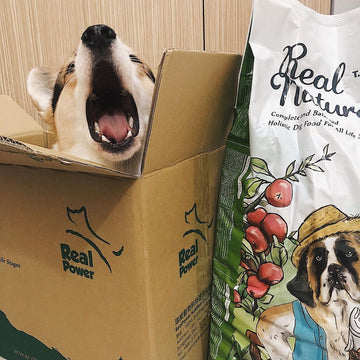Learn More About Aflatoxin from the FDA’s Large-Scale Recall on Pet Food

|
What Happened?
|
For American families with pets, January 11th of this year was a momentous day.
A batch of pet food from a pet food manufacturer was discovered to be contaminated with aflatoxin, resulting in the entire batch’s recall and removal from shelves.
However, for more than 300 cats and dogs, this discovery and decision was too late. The aflatoxin had already caused irreversible damage, and as of January 26th, about 110 pets had passed away.
|
What exactly is aflatoxin and how does it cause such serious effects?
|
Aflatoxin is a mycotoxin produced by the mold Aspergillus flavus. Like many mycotoxins, aflatoxin is carcinogenic. It also causes congenital disabilities, mutations, and immunosuppressive toxicity in most mammals. Because it is highly toxic to the liver, excessive ingestion can lead to liver failure, and in severe cases, death.
Aflatoxin can be found in many agricultural products, mainly corn, cottonseed, peanuts, and nuts. Its risk is related to its toxicity as well as exposure, with low ingestion levels over long periods also causing severe harm.
Animals infected by aflatoxin can cause decreased appetite, vomiting, jaundice (the whites of the eyes, gums, and skin turn yellow), hemorrhage, diarrhea, and if serious enough, death. Because the symptoms caused by aflatoxins are not specific, it is difficult for veterinarians to make a diagnosis based only on a pet’s symptoms.
If you suspect your pet may have aflatoxin poisoning, please bring all of your pet’s food (and packaging) with you when seeing the vet.
| What can I do to protect my pet and avoid tragedy? |
Warm, humid places are the environments most suitable for mold. When food is at a temperature of 24-35℃, with a water content of 25-35%, molds can grow in high numbers and produce aflatoxins at the same time.
The water content in dog and cat food is around 10% or less, and such dryness facilitates food preservation. After the seal on the food package is broken, store it in a cool place and be sure to reseal afterward. Do not dampen the pet food by moistures in the air and promote contamination.
Avoid feeding your pets CORN, which is the most susceptible to aflatoxin contamination, may not be enough to ensure your pet’s safety. Raw milk can also contaminate by aflatoxin. However, the risk in foods that contain corn and whole grains is higher. Since June 2019, the United States has seen 6 cases of excessive aflatoxin levels resulting in food recalls, with ALL the foods in question containing corn and wheat. Storing food in a proper condition is one way of avoiding aflatoxin contamination. Unused ingredients of fresh homemade pet foods and leftovers should be refrigerated to prevent the spread of mold.
Also, remember to choose food products from trusted manufacturers.
Real Power products do not use corn or wheat. For example, the grain used for dog food is refrigerated white rice from Taiwan’s Jianan Plain, whereas white rice is not commonly used in American and European pet food. Instead, broken rice, brewers rice, and brown rice are used, which have a higher potential for mycotoxin contamination. The rice used in Real Power pet food is the Taiwan standard CNS24259 Grade 2 fresh rice, which is the same rice sold in supermarkets. The white rice used in Real Power is kept in cold storage, which substantially reduces mold and parasites’ growth. In every SGS test conducted, the results for the presence of aflatoxin were zero (N/D), which meets Taiwan "Standards for types and tolerance levels of pathogenic microorganisms and health-hazard materials in pet food."
Finally, Real Power Pet Food’s full range of products includes “Natural Toxin Binder,” which can absorb aflatoxins that pets may accidentally ingest in other foods or from their surroundings. If a large amount of toxin is accidentally ingested, Real Power’s nutritional formula includes “methionine,” which can reduce toxic damage to the liver.
|
At Real Power Pet Food, your pet’s health is always our priority!
|
References
1. Aquino, Simone, and Benedito Corrêa. "Aflatoxins in pet foods: a risk to special consumers." Aflatoxins-Detection, Measurements and Control (2011).
2. Official wesite of U.S. Food & Drug Administration
https://www.fda.gov/animal-veterinary/safety-health/recalls-withdrawals
https://www.fda.gov/animal-veterinary/outbreaks-and-advisories/fda-alert-certain-lots-sportmix-pet-food-recalled-potentially-fatal-levels-aflatoxin#products
Find out more about
Words From Our Nutritionists : We Don’t Use Any Soy, Wheat And Legumes
Nutritionist’s Words on Grain-free & DCM

